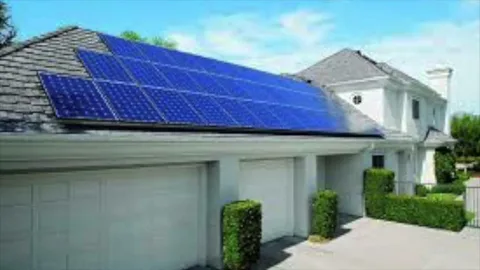As the world continues to combat climate change and reduce dependence on fossil fuels, many homeowners are turning to sustainable alternatives for their energy needs. Home solar power systems: eco-friendly energy solutions have emerged as a popular and effective way to reduce carbon footprints while saving money in the long term.
Why Solar Power Is Gaining Popularity
Solar power harnesses the sun’s natural energy and converts it into electricity for residential use. With the rising costs of traditional energy and increasing awareness about environmental issues, more people are exploring renewable options. Home solar power systems: eco-friendly energy solutions provide an accessible path toward sustainable living, requiring only rooftop space and sunlight to operate efficiently.
Environmental Benefits
One of the greatest advantages of solar energy is its minimal environmental impact. Unlike fossil fuels, solar power doesn’t emit harmful gases or pollutants. By investing in a solar system, homeowners can significantly reduce their greenhouse gas emissions and contribute to a cleaner, healthier planet.
Financial Savings
In addition to helping the environment, solar power can substantially lower electricity bills. After the initial installation cost, solar panels can generate free energy for 25 years or more. Many governments also offer incentives, rebates, and tax credits to support those who choose home solar power systems: eco-friendly energy solutions.
How Home Solar Power Systems Work
A typical home solar system consists of photovoltaic (PV) panels, an inverter, a battery (optional), and a monitoring system. The panels capture sunlight and convert it into direct current (DC) electricity. The inverter then changes the DC into alternating current (AC), which powers household appliances.
Grid-Tied vs. Off-Grid Systems
There are two primary types of solar systems for homes:
- Grid-tied systems remain connected to the local utility grid, allowing homeowners to use solar energy during the day and grid power at night or on cloudy days.
- Off-grid systems are independent and typically include battery storage to supply electricity when solar production is low.
The Future of Solar Energy
Technology in solar energy continues to evolve, making systems more efficient and affordable than ever. As innovations like solar shingles, smart inverters, and enhanced storage solutions enter the market, home solar power system: eco-friendly energy solutions will become an even more integral part of sustainable living.
Conclusion
Switching to solar power is a meaningful step toward environmental responsibility and energy independence. With the numerous benefits, including cost savings, increased home value, and reduced carbon emissions, it’s no wonder that home solar power systems: eco-friendly energy solutions are gaining widespread popularity. For those looking to make a smart and sustainable investment, solar energy is a bright choice.



